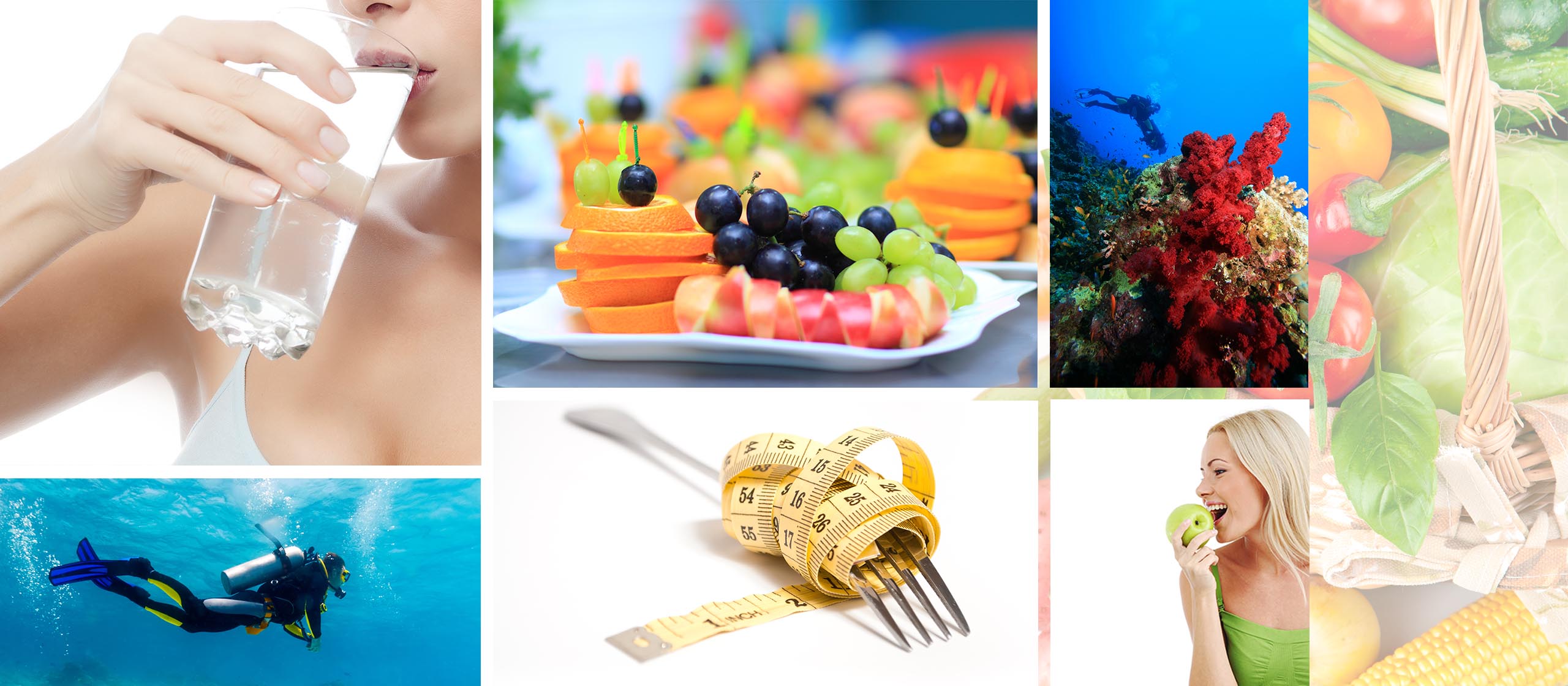Diving and Nutrition : an interesting relationship
An illustrious food expert and the European leader in scientific research on scuba diving safety: the collaboration between the DAN Europe DSL (Diving Safety Laboratory) Nutrition Observatory and Dr. Paolo De Cristofaro, manager of the Abruzzo Regional Nutrition Physiopathology Centre, fellow director of the SINU (Italian Human Nutrition Society), lecturer at the Postgraduate School of Food Science at “Gabriele d’Annunzio” University of Chieti and director of the continuing education school on food pathology, besides being the author of the book "Basi metodologiche dell’approccio psiconutrizionale" (Methodological bases of the psycho-nutritional approach).
Professor, please tell us how and when your encounter with the Research division of DAN Europe began?
Dr. Paolo De Cristofaro: It began through common interests and desires: last summer, the DAN Diving Safety Laboratory was starting a new and interesting project centred on nutrition; I had just been involved in the personalisation of a diet for setting a sports record… I'd say it was a fated encounter! Our intent is to examine the relationship between sport and food, in particular between eating and diving, so as to set up a database on the bio-psychosocial and behavioural aspects of the scuba and free divers' population, furthering the knowledge of their characteristics, needs, behaviour and risks. The final objective is to find a correlation between eating habits and risk factors in diving, so as to improve overall safety, preventing accidents and improving performance in sport.
Could you illustrate for us the phases of this collaboration?
Dr. Paolo De Cristofaro: The work with the DAN experts is a team effort, analogous to that carried out at the Physiopathology Centre I direct, an integrated multidisciplinary structure active in the field of eating disorders. The collaboration is therefore planned to have an initial medical evaluation phase (clinical/anthropometric and metabolic) of scuba scuba/free divers who wish to personally contribute to the Diving Safety Laboratory research, "donating" their dive profiles. After collecting the data it will be elaborated, enriched with the study of live subjects (we are thinking of groups of a maximum of 10, 15 people) to which we'll apply new systems of analysis, monitoring them with a multi-sensor which measures the glycaemic Holter variables, energy consumption and all the other physiological variables.
Is there an ideal diet for divers?
Dr. Paolo De Cristofaro: The question is simple, the answer complex… I would begin from the word "diet" which I consider obsolete, penalising and misleading: I would rather speak of a dialogue with one's body. A dialogue which not everyone cultivates as they should and which is of fundamental importance to sports practitioners. The main vehicles for this bodily awareness are keeping an eating journal and responding to the investigative questionnaire.
Another key concept is that of "nutritional personalization", a mission which I've always been pursuing and with great passion: there are no ideal nutritional recommendations which are universally valid; we each have our needs… all the more when you practice sports like scuba diving! First of all you have to look at many variables (habits, life styles, etc.), analysing them through the questionnaire and eating journal, to then elaborate an adequate food programme for the physiological changes that the practice of such disciplines bring.
Let's look at this tool in detail: how is it structured and why is it so important?
Dr. Paolo De Cristofaro: First of all I would like to point out a fact: it's a truly unique questionnaire in its kind, devised together with DSL researchers so as to cover many different aspects, adapting it to the peculiarities of scuba/free divers. It has four parts, respectively for general details and bodily measurements, lifestyle and sporting activity, behaviour and eating preferences, and state of health. A simple but detailed wide-ranging instrument, which stimulating self-observation and self-assessment by subjects, puts them in a position of contributing first hand in the development of the research programme.
Filled-in questionnaires are integrated into the eating diary for the 24 hours of the diving day, fundamental for individuating any correlations between eating certain foods and substances and the incidence of disorders or even injuries. It is fundamental that besides solid foods, the food diary also reports drinks taken: as highlighted by some DSL studies, there is in fact a connection between divers' hydration levels and the appearance of DCS symptoms – those of decompression sickness.
At the beginning of this conversation, you mentioned the personalisation of a sporting record: can you tell us any more about it or is a professional secret of yours?
Dr. Paolo De Cristofaro: I'll do it gladly. I have been following the sporting ventures of athlete Mirko Fazzini for years, last summer he set a record for open water sea crossing in a kayak. An impressive feat: Fazzini covered 163 kilometres in 24 hours, travelling at the speed of 7.4 km per hour, making 72,000 paddle strokes. In total, he used 5,700 calories and took 3,500, 2,200 of which in pre-race phases, and these were composed by: 60% carbohydrates, 32% fat and 8% protein. The technical resting time was just two hours, less than the planned six, with 22 hours of actual paddling.
To set such a complex record, the nutritional programme I devised was fundamental. It was based on the intake every two-three hours of a high quantity of very digestible fats, sequential release carbohydrates mainly containing maltodextrin, in the form of a kind of pastry made with mother culture dough, wet and flavoured with a mix of olive oil and MCT oil which is characterised by medium-chain fatty acids which are used directly by muscles, providing athletes with a source of energy ready to use.
One last curiosity: has your collaboration with DAN Europe made you want to experiment the sensations and feelings of diving in first person?
Dr. Paolo De Cristofaro: I'm not a scuba diver, but I wouldn't rule out taking a Diving Test soon!

